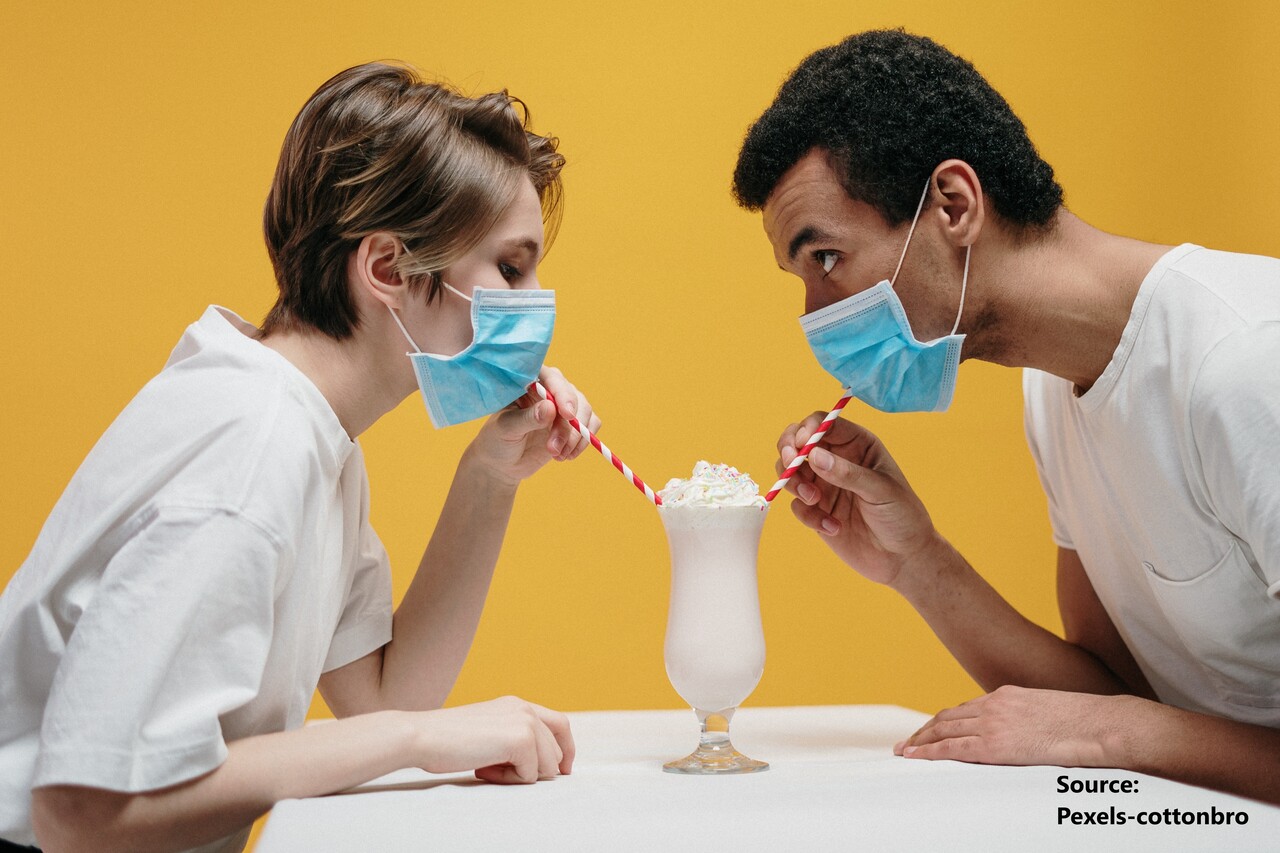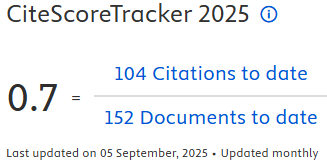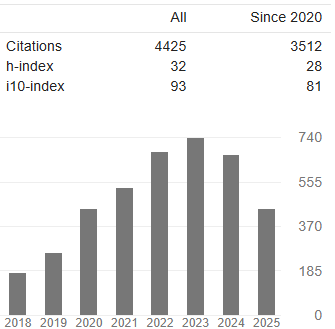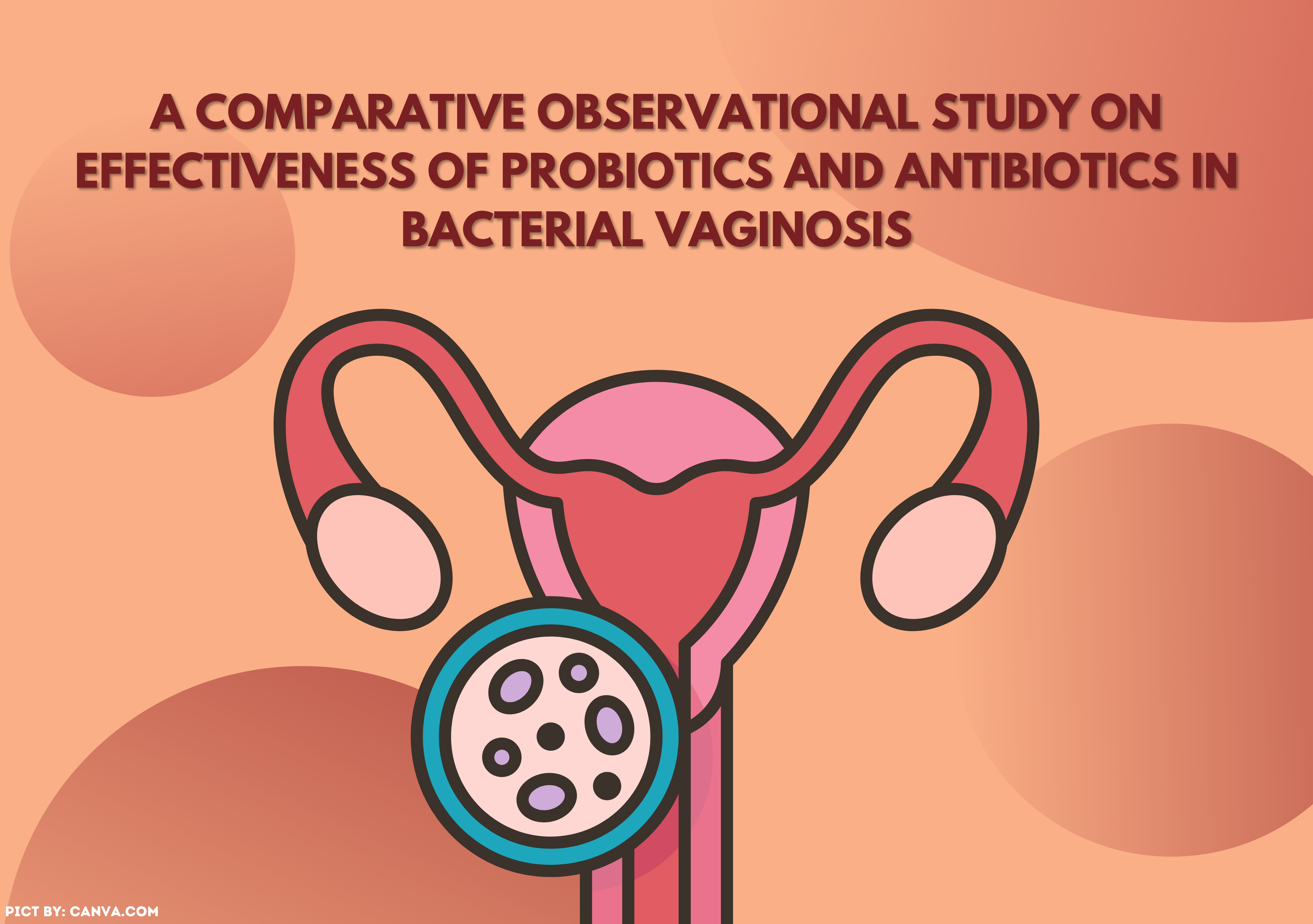MONITORING OF MICROBIOLOGY QUALITY RAW WATER AND REFILLED DRINKING WATER DURING COVID-19

Introduction: Riau province regency / city data for drinking water depots in 2020 show that the largest number of Pekanbaru City in Riau Province has refill drinking water depots, there are 440 depots consisting of 220 feasible depots while 227 depots are not feasible. This research was conducted in the Tampan sub-district which is the most densely populated city of Pekanbaru. The purpose of this study was to evaluate the microbiological quality standards (Coliform) for refill drinking water depot, raw water source quality standards and population well quality standards during Covid-19. Methods: This research is quantitative descriptive analytic with triangulation methods observation with laboratory tests, in-depth interviews with correspondents of depot officers and residents of drinking water wells. The test was carried out at the UPT health and environment laboratory of the Riau provincial health office. Result: Data analysis compared 7 samples with laboratory test results according to quality standards. The results of the analysis stated that there were no Coliform bacteria in the tested samples. The source of raw water from housing will have better standard of quality the deeper it is. Conclusion: There is no periodic supervision from the health office / Puskesmas to drinking water depot during the Covid-19 period which is usually routinely carried out every 3-6 months according to regulation of ministers of health no.736,2010 concerning supervision of drinking water quality. Housing developers are required to provide a clean water source from a proper borehole from the start of housing development.
Asfawi, S., Nurjazuli, N. and Sulistiyani, S. (2015) ‘Analisis Faktor yang Berhubungan Dengan Kualitas Bekteriologis Air Minum Isi Ulang Tingkat Produsen Di Kota Semarang Tahun 2004.', Jurnal Kesehatan Lingkungan Indonesia; Vol 3, No 2 (2004): OKTOBER 2004. doi: 10.14710/jkli.3.2.50 - 53.
Dangiran, H. L. and Dharmawan, Y. (2020) ‘Analisis Spasial Kejadian Diare dengan Keberadaan Sumur Gali di Kelurahan Jabungan Kota Semarang', Jurnal Kesehatan Lingkungan Indonesia, 19(1), p. 68. doi: 10.14710/jkli.19.1.68-75.
Dewanti, R. A. and Sulistyorini, L. (2017) ‘Analisis Kualitas Bakteriologis Air Minum Isi Ulang Di Kelurahan Sememi, Kecamatan Benowo', The Indonesian Journal of Public Health, 12(1), p. 39. doi: 10.20473/ijph.v12i1.2017.39-50.
Elsi, E. et al. (2019) ‘Karakteristik Rumah Tangga Pengguna Air Minum Kemasan Dan Isi Ulang Di Indonesia', Jurnal Ekologi Kesehatan, 17(3 SE-Articles). doi: 10.22435/jek.17.3.319.155-164.
Endang Purnawati Rahayu, H. (2022) ‘Perceptions of Sanitation Hygiene Refill Drinking Water Depot in the Region of Indonesia', Gaceta Medica de Caracas, 130. doi: 10.47307/GMC.2022.130.S1.37.
Herniwanti, H., Dewi, O., et al. (2020) ‘Penyuluhan Perilaku Hidup Sehat Dan Bersih (PHBS) dan Gerakan Masyarakat Hidup Sehat (GERMAS) kepada Lanjut Usia (LANSIA) Menghadapi Masa Pandemi Covid 19 dan New Normal dengan Metode 3M', Jurnal Abdidas, 1(5 SE-), pp. 363–372. doi: 10.31004/abdidas.v1i5.82.
Herniwanti, H., Yunita, J., et al. (2020) ‘Penyuluhan Personal Higyene pada Lanjut Usia di UPT Pelayanan Sosial Tresna Werdha Husnul Khotimah Kota Pekanbaru', Jurnal Abdidas, 1(4 SE-), pp. 254–260. doi: 10.31004/abdidas.v1i4.55.
Herniwanti, H. et al. (2021) ‘Penyuluhan Sanitasi Total Berbasis Masyarakat (STBM) sebagai Support Program Kesehatan Lingkungan pada Masa Pandemi COVID-19', Jurnal Abdidas, 2(2), pp. 435–441. doi: https://doi.org/10.31004/abdidas.v2i2.295.
Herniwanti, H., Purnawati Rahayu, E. and Purwawinata Mohan, Y. (2021) ‘Characteristics of Refill Drinking Water Depot and Bacteriology Evaluation in Covid-19 Period', in Muhammadiyah International Public Health and Medicine Proceeding. Jakarta: Universitas Muhammadyah Jakarta, pp. 579–594. doi: 10.53947/miphmp.v1i1.100.
Herniwanti, H. and Ray, D. K. (2022) ‘Evaluation Drinking Water Depot Sanitation Hygiene In Pekanbaru City', Jurnal Kesehatan Lingkungan Indonesia; 2022: Article In Press OctoberDO - 10.14710/jkli.0.0.%p.
Muharam Heluth (2013) ‘Dug Well Water Quality of the Tifu Village Community, Waeapo Sub-district, Buru Regency, Maluku Province', Media Kesehatan Masyarakat Indonesia, 9(2), pp. 67–73.
Nazar, H., Kasri, A., Saam, Z. (2010) ‘Kebijakan Pengendalian Pencemaran Sumber Air Bersih Perumahan Sederhana di Kota Pekanbaru (Kasus di Kecamatan Tampan)', Environmental Science, 1(4), pp. 63–80.
Novitasari, D. (2020) ‘Processing System and Evaluation Microbiological Quality of Drinking Water Fountain in Surabaya City', Jurnal Kesehatan Lingkungan, 12(3), p. 154. doi: 10.20473/jkl.v12i3.2020.154-162.
Nuria, M. C., Rosyid, A. and Sumantri (2009) ‘Maulita Cut Nuria Uji Kandungan Bakteri Escherichia Coli', Jurnal -Pertanian, 5(1), pp. 27–35.
Pakpahan, R. S., Picauly, I. and Mahayasa, I. N. W. (2015) ‘Cemaran Mikroba Escherichia coli dan Total Bakteri Koliform pada Air Minum Isi Ulang', Kesmas: National Public Health Journal, 9(4), p. 300. doi: 10.21109/kesmas.v9i4.733.
Pratiwi, A. W. (2007) ‘Kualitas Bakteriologis Air Minum Isi Ulang di Wilayah Kota Bogor', Kesmas: Jurnal Kesehatan Masyarakat Nasional (National Public Health Journal); Vol. 2 No. 2 Oktober 2007. doi: 10.21109/kesmas.v2i2.271.
Rahayu, C. S. and Setiani, O. (2013) ‘Faktor Risiko Pencemaran Mikrobiologi pada Air Minum Isi Ulang di Kabupaten Tegal', Jurnal Kesehatan Lingkungan Indonesia, 12(1), pp. 1-9–9. doi: 10.14710/jkli.12.1.1-9.
Regulation of the Minister of Health of the Republic of Indonesia 32, N. 3. (2017) ‘Environmental Health Quality Standards and Water Health Requirements for Sanitary Hygiene, Swimming Pools, Solus Per Aqua, and Public Baths'.
Regulation of the Minister of Health of the Republic of Indonesia No.492, 2010 (2010) ‘Drinking Water Quality Requirements', Kemenkes RI.
Ronny, R. and Syam, D. M. (2016) ‘Studi Kondisi Sanitasi Dengan Kualitas Bakteriologis Depot Air Minum Isi Ulang di Kecamatan Panakkukang Kota Makassar', HIGIENE: Jurnal Kesehatan Lingkungan, 2(2), pp. 81–90.
Sarah Atyikah, Herniwanti, Novita Rany. Oktavia Dewi, I. (2021) ‘Evaluasi Operasional Depot Air Minum Isi Ulang ( Damiu )', Manarang, 7(2), pp. 116–124. doi: https://doi.org/10.33490/jkm.v7i2.320.
Sarah Atyikah, Herniwanti, N. R. (2020) Operasional evaluation of Refill Dringking Water Depots ( DAMIU ) in the working area of Puskesmas Rambah.
Suci Wulandari, Arum Siwiendrayanti, A. S. W. (2015) ‘Higiene Dan Sanitasi Serta Kualitas Bakteriologis Damiu Di Sekitar Universitas Negeri Semarang', Unnes Journal of Public Health, 4(3), pp. 8–15. doi: 10.15294/ujph.v4i3.6338.
Suriadi, S., Husaini, H. and Marlinae, L. (2016) ‘Hubungan Hygiene Sanitasi dengan Kualitas Bakteriologis Depot Air Minum (DAM) di Kabupaten Balangan', Jurnal Kesehatan Lingkungan Indonesia; Vol 15, No 1 (2016): April 2016. doi: 10.14710/jkli.15.1.28-35.
Weni, E., Purba, M. S. and Erda, Z. (2017) ‘Faktor Higiene Sanitasi yang Berhubungan dengan Kualitas Bakteriologi Air Minum Isi Ulang di Kota Tanjungpinang', JKMA: (Jurnal Kesehatan Masyarakat Andalas) (Andalas Journal of Public Health), 11(1), pp. 33–38.
Yen Purnawinata, Herniwanti, E. P. R. (2020) ‘Higiene Sanitasi Dan Pemeriksaan Bakteri Coliform Dan E.Coli Pada Air Minum Isi Ulang Di Kecamatan Koto Kampar Hulu Kabupaten Kampar', Thesis Magister Kesehatan Masyarakat, Universitas Hang Tuah Pekanbaru.
Yen Purwawinata Mohan, Herniwanti, E. P. R. (2021) ‘Baku Mutu Mikrobiologi Bakteri Coliform Dan E. Coli Pada Air Minum Isi Ulang (Amiu) Di Kecamatan Koto Kampar Hulu, Riau', Prosiding SainTeKes Semnas MipaKes Umri. Pekanbaru: Universitas Muhammadyah Pekanbaru, p. 75.
Copyright (c) 2022 The Indonesian Journal of Public Health

This work is licensed under a Creative Commons Attribution-NonCommercial-ShareAlike 4.0 International License.
- The authors agree to transfer the transfer copyright of the article to The Indonesian Journal of Public Health effective if and when the paper is accepted for publication.
- Authors and other parties are bound to the Creative Commons Attribution-NonCommercial-ShareAlike 4.0 International License for the published articles, legal formal aspect of journal publication accessibility refers to Creative Commons Attribution-NonCommercial-ShareAlike 4.0 International License (CC BY-NC-SA), implies that:
- Attribution ” You must give appropriate credit, provide a link to the license, and indicate if changes were made. You may do so in any reasonable manner, but not in any way that suggests the licensor endorses you or your use.
- NonCommercial ” You may not use the material for commercial purposes.
- ShareAlike ” If you remix, transform, or build upon the material, you must distribute your contributions under the same license as the original.































